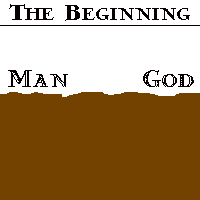No on lives up to the ideal, Dostoevsky admits. No one can perfectly love his neighbour as himself. No one can fulfill the law of Christ. God cannot ask so much and be satisfied with so little. We are made for that which is too big for us. It is for this very reason, he concludes, that he must believe in afterlife. Without such a belief, he concludes, our futile struggle to fulfill the law of Christ would have no point. It is our very longing, our failure, our sense of incompleteness that focrces us to throw ourselves on God's mercy. Our imperfection in this life calls for another, more complete realization of that ideal.
There is only one way for any of us to resolve the tension between the high ideals of the gospel and the grim reality of ourselves: to accept that we will never measure up, but that we do not have to. Absolute ideals and absolute grace... Grace announces that that not only is the kingdom of God within me, God himself dwells there.
I read the New Testament, especially the Sermon on the Mount, with a different spirit now... Jesus did not proclaim these exalted words so that we would, Tolstoy-like, furrow our brows in despair over our failure to achieve perfection. He proclaimed them to impart to us God's ideal toward which we should never stop striving, and also to show that none of us will ever reach that ideal. The Sermon on the Mount forces us to recognise that distance between God and us, and any attempt to reduce that distance by somehow moderating its demands misses the point altogether. We are all desperate, and that is in fact the only state appropriate to a human being who wants to know God. Having fallen from the absolute ideal, as Tolstoy did, we have nowhere to land but with Dostoevsky, in the safety net of absolute grace.
Soul Survivor by Philip Yancey
The Sermon on the Mount has always troubled me and the above passage voices some of my own struggles with its demands. I guess I would describe myself as an idealistic person, and while I've been tempted many times, I am thankful I've not given up on the ideals nor tried to moderate its demands to silence my conscience. Reading this book has helped me address many issues that I have struggled with through the years. The timing simply can't be better.
Yancey has helped me once again come to terms with the paradox of absolute ideals and absolute grace. I admit my mind which prefers answers in black and white find it hard to register paradox, and the Bible is full of them. I am grateful for them nevertheless. It is comforting to know that others have struggled with the same distance between Christianity that is often practiced and these ideals. How then should I live? I believe this is the mandate ...
The gospel of grace inflitrates this world not primarily through words and rational arguments, but through deeds. through love. I (Yancey) found humble people who each day faced human problems more extreme than I could imagine, and yet who responded not with paralysis or resentment but with compassion and love. Dostoevsky showed me the logical consequences of a life based on nihilism and doubt; living Christian servants showed me the logical consequences of a life based on faith and love. To follow Jesus, I learned, does not mean to solve every human problem - Christ himself did not attempt that - but rather to respond as he did, against all reason to dispense grace and love to those who deserve it least.
God has made everything beautiful for its own time. He has planted eternity in the human heart, but even so, people cannot see the whole scope of God's work from beginning to end.
Life is about changes and learning to enjoy the adventure of journeying in life with Him. I can't see what's ahead and have no way of controlling how things will go. I can only trust Him, that He makes all things beautiful in its time.
Sunday, March 19, 2006
Subscribe to:
Post Comments (Atom)



No comments:
Post a Comment